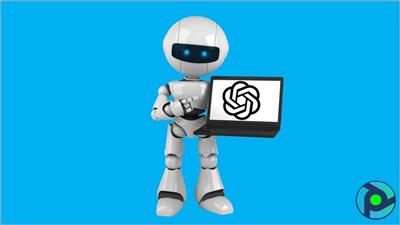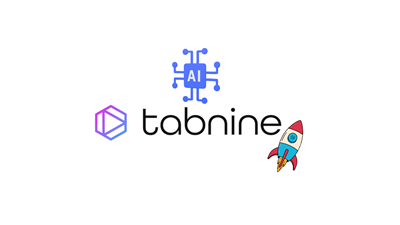
Artificial Intelligence: Transforming the Future of Technology
Artificial Intelligence, or AI, has transitioned from the stuff of science fiction to an integral part of our daily lives. As technology advances, AI is playing a crucial role in almost every sector, from healthcare to finance to our personal gadgets. But what exactly is AI, how does it work, and why is it so important today? In this article, we'll dive deep into the world of AI, exploring its applications, benefits, and future potential.
What is Artificial Intelligence (AI)?
At its core, Artificial Intelligence refers to the development of computer systems that can perform tasks typically requiring human intelligence. These tasks include things like recognizing speech, making decisions, translating languages, and even identifying patterns in large datasets. Unlike traditional software that follows predefined rules, AI systems can learn, adapt, and improve their performance over time.
AI can be seen in technologies such as smart assistants like Siri or Alexa, self-driving cars, and personalized recommendations on platforms like Netflix or Amazon. The goal of AI is to create systems that can mimic or enhance human intelligence, making tasks more efficient and allowing machines to solve problems without direct human input.
Why is AI Important Today?
AI is no longer just a futuristic concept; it's a driving force behind much of the innovation we're seeing today. Companies are leveraging AI to automate tasks, improve customer service, streamline operations, and even predict future trends. AI enables faster and more accurate decision-making by analyzing huge datasets that would take humans years to process manually.
Types of Artificial Intelligence
Narrow AI vs. General AI
AI can be categorized into two main types: Narrow AI and General AI.
- Narrow AI, For instance, an AI system that recognizes faces in photos or recommends products online falls under this category. Narrow AI is everywhere today, and it's what most people interact with regularly.
- General AI, on the other hand, is a more advanced concept where AI would have the ability to perform any intellectual task that a human being can do. General AI remains largely theoretical, though researchers are working towards achieving it.
Machine Learning (ML) and Deep Learning (DL)
Machine learning refers to systems that can learn from data and improve over time without being explicitly programmed. Deep learning is a further advancement that mimics the human brain’s neural networks to make decisions. It’s deep learning that powers much of the innovation we see in image recognition, speech processing, and autonomous driving.
Neural Networks and Natural Language Processing (NLP)
Neural networks are the underlying architecture of many AI systems, allowing computers to process complex patterns and data like the human brain. Natural Language Processing (NLP) is another vital area of AI, where machines are trained to understand, interpret, and respond to human language, as seen in AI chatbots or voice recognition systems.
Key Applications of AI
AI’s potential spans across many industries, providing solutions that improve efficiency, reduce costs, and enhance user experience.
AI in Healthcare
AI is revolutionizing healthcare by assisting doctors in diagnosing diseases, predicting patient outcomes, and even analyzing medical images. AI systems like IBM Watson Health are used to analyze complex medical data, helping healthcare providers make better-informed decisions.
AI in Finance and Banking
AI helps banks detect fraud, manage risk, and personalize customer service. Algorithms can analyze spending patterns to detect suspicious activities and flag potential fraud in real-time.
AI in Retail and E-Commerce
From chatbots to personalized shopping experiences, AI is enhancing the way customers interact with online retailers. AI systems analyze shopping behaviors and suggest products, improving sales and customer satisfaction.
AI in Autonomous Vehicles
Self-driving cars use AI to navigate roads, avoid obstacles, and learn from their environment. Companies like Tesla are at the forefront of integrating AI into vehicles for a safer, autonomous driving experience.
The Role of Machine Learning in AI
Machine learning is central to the progress of AI. Unlike traditional programming, where a human defines rules for how a system should work, machine learning allows AI to learn from data. Here’s how:
Supervised vs. Unsupervised Learning
- Supervised learning involves training the machine with labeled data, where the desired outcome is already known. This helps the machine recognize patterns and make predictions.
- Unsupervised learning, however, works with unlabeled data. The system identifies hidden patterns or intrinsic structures within the data.
The Rise of Deep Learning: How it Mimics the Human Brain
Deep learning takes machine learning further by using layers of artificial neural networks, somewhat mirroring the way our brains work. These networks are particularly good at recognizing patterns, which makes them useful for tasks like image recognition or natural language processing.
How AI is Transforming Industries
AI is not confined to just a few sectors; it’s transforming industries across the board.
AI in Manufacturing and Automation
Manufacturing industries use AI to streamline production lines, predict equipment failures, and automate routine tasks. AI-driven robots handle precision tasks that are difficult or dangerous for humans.
AI in Agriculture: Smart Farming
Farmers use AI for crop monitoring, soil analysis, and even to automate harvesting. Drones and sensors provide real-time data to optimize agricultural practices, reduce waste, and increase yields.
AI in Marketing and Personalization
AI helps marketers analyze consumer data to deliver personalized experiences. Predictive analytics allow businesses to understand consumer behavior and optimize advertising strategies.
AI in Education: Personalized Learning Paths
AI-powered educational tools offer personalized learning experiences by analyzing student performance data and tailoring lessons to their individual needs.
Benefits of Artificial Intelligence
- Efficiency and Automation: AI can automate repetitive tasks, increasing productivity and reducing human error.
- Enhancing Human Capabilities: AI augments human abilities by analyzing data faster and offering insights that would be hard for humans to compute manually.
- Data-Driven Decision Making: AI systems can process large amounts of data to help businesses make smarter, faster decisions.
- Scalability and Consistency: AI systems can operate at a scale humans can't, ensuring consistent performance even as they handle more data.
Ethical Considerations in AI
The Ethical Dilemmas of AI Use
AI raises numerous ethical concerns, such as the potential misuse of data, bias in algorithms, and the question of accountability when AI systems make decisions.
Privacy Concerns and Data Security
This raises concerns about data privacy and the potential for misuse or breaches.
Bias and Fairness in AI Algorithms
AI systems are only as unbiased as the data they are trained on. If the data reflects existing prejudices, the AI may perpetuate those biases in its decisions, leading to unfair outcomes in areas like hiring or law enforcement.
The Future of Work: AI and Job Displacement
There are concerns that AI could lead to widespread job displacement, particularly in industries that rely on repetitive tasks. However, some argue that AI will create new jobs by enhancing human capabilities and generating demand in new areas.
Challenges and Limitations of AI
While AI holds enormous promise, it's not without its limitations.
Technical Challenges: Data Requirements and Processing Power
AI systems need vast amounts of high-quality data to function effectively, and processing that data requires significant computational resources.
Lack of Transparency (Black Box AI)
Many AI systems, particularly deep learning models, function as "black boxes," meaning their decision-making processes are opaque. This lack of transparency makes it difficult to understand how the AI reaches its conclusions.
High Costs of Implementation
Developing and implementing AI solutions can be costly, particularly for smaller businesses.
Societal Resistance to AI Adoption
Despite the benefits, there is still resistance to AI adoption, often due to fear of job loss, security concerns, or lack of understanding of how AI works.
The Future of AI
AI Trends and Future Predictions
As AI continues to evolve, expect further advancements in areas like autonomous vehicles, healthcare, and natural language processing. AI will also become more integrated into everyday devices, further blurring the lines between human and machine intelligence.
The Rise of General AI: Can Machines Truly Think?
While General AI remains a long-term goal, researchers are exploring the possibility of machines that can perform any intellectual task a human can. This raises philosophical questions about what it means to think and whether machines could ever truly have consciousness.
The Role of AI in Solving Global Issues (e.g., Climate Change)
AI can also be used to tackle global challenges, such as climate change, by optimizing energy use, predicting natural disasters, and developing sustainable practices.
AI and Human Collaboration
Augmented Intelligence: AI Working with Humans
AI isn't about replacing humans; it’s about augmenting human capabilities. In fields like medicine, AI can assist doctors in diagnosing diseases, but the human touch remains irreplaceable.
How AI Can Enhance Human Decision-Making
AI provides insights by analyzing data, but human judgment is still essential for interpreting results and making final decisions.
The Limits of AI: Why Human Oversight is Essential
While AI is powerful, it is not infallible. Human oversight is crucial to ensure that AI systems are used ethically and effectively.
AI and Robotics
The Intersection of AI and Robotics
From industrial robots to household assistants, AI makes robots smarter and more adaptable.
Applications of AI in Robotics: From Industrial Robots to Personal Assistants
AI-driven robots are used in everything from manufacturing plants to healthcare settings, where they assist with surgeries or provide patient care.
The Role of AI in Autonomous Robots
Autonomous robots, like self-driving cars or drones, rely heavily on AI to navigate their environments and make decisions in real-time.
AI in Everyday Life
AI in Smart Homes: Devices and Automation
AI powers smart home devices, such as thermostats, security systems, and lighting, making our homes more efficient and secure.
AI in Personal Devices: Smartphones, Smartwatches, and More
Most of us interact with AI daily through our smartphones and smartwatches. Features like voice recognition, predictive text, and personalized app recommendations are all powered by AI.
AI in Entertainment: Streaming, Gaming, and Content Recommendations
AI plays a significant role in streaming services, recommending content based on user preferences. In gaming, AI creates more dynamic and responsive gameplay experiences.
AI and Data Privacy
How AI Collects and Analyzes Data
AI systems gather and process enormous amounts of data to provide personalized experiences and recommendations. However, this raises questions about how that data is collected, stored, and used.
Balancing Innovation with Privacy Concerns
Companies must balance the desire to innovate with the need to respect user privacy. Striking the right balance will be key to maintaining public trust.
Regulations Governing AI and Data Usage (e.g., GDPR)
Governments have introduced regulations like the General Data Protection Regulation (GDPR) in Europe to ensure that AI systems handle personal data responsibly.
AI Best Practices for Businesses
How Companies Can Implement AI Successfully
Businesses looking to implement AI must start with a clear strategy. It’s important to identify specific problems that AI can solve and ensure that the necessary data and infrastructure are in place.
Identifying the Right Use Cases for AI
Not every business problem can be solved with AI. Companies must carefully select areas where AI can have the most significant impact, such as automating routine tasks or improving customer interactions.
Aligning AI Strategies with Business Goals
AI should align with overall business objectives. Rather than adopting AI for the sake of innovation, companies must focus on how AI can enhance performance and deliver measurable results.
Conclusion
Artificial Intelligence is reshaping the way we live and work, offering both incredible opportunities and significant challenges. From improving efficiency to creating new business models, the future of AI is full of potential. However, as we move forward, it’s crucial to approach AI with a balanced perspective—leveraging its benefits while addressing the ethical, social, and technical challenges it presents.


